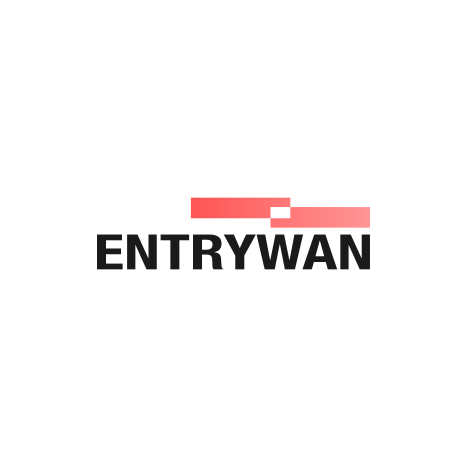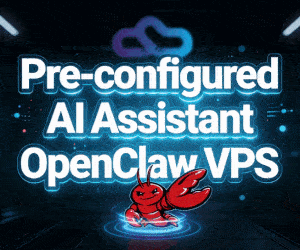
Today we’re taking a look at Entrywan, a new provider located in Nashville, Tennessee. They started operations last June (2023) and have built out an impressive breadth of offerings.
In our community, we see a lot of providers who build out a very “same as everyone else” kind of infrastructure: rent some servers, set up Solus and WHMCS, and call it a day. And for some users, that’s all they need. But if you want a full cloud experience – load balancers, objects storage, snapshots, K8s, API, etc. – then a company like Entrywan is who you want to look at.
Their pricing is very competitive versus someone like DigitalOcean. For example, the benchmark 1GB VM is $4/month with 1TB of bandwidth. And that’s in Nashville, which is not a common geography. But beyond the sticker price, there’s a lot of infrastructure. Some things they offer:
- Full API
- Kubernetes, with different node sizes
- Object storage
- Layer 3 load balancers
- Snapshots
- Firewalls
- VPC networks
- IAM
…and more! Quite refreshing to see a provider with such extensive documentation.
A little more of their story:
Entrywan was founded in the summer of 2023 as a truly independent cloud provider focused on simplicity, security and good customer service and support.
Our team is based in the US and a few European countries. Our headquarters are in Franklin, Tennessee.
Some important events and milestones from our company history:
— Entrywan LLC is formed on June 27, 2023 as a Delaware LLC.
— On July 20, 2023 Entrywan is registered with ARIN, the North American internet registry, and receives AS14219.
— We select our first data center location in Nashville in August 2023 and our equipment is installed and booted for the first time in September 2023.
Aaron from Entrywan was kind enough to answer some of our questions. Here’s a peak inside this emerging cloud provider:
LEB: You’re relatively new to the hosting world, starting operations in June of 2023. Why did you decide to get into this hyper-competitive market?
There’s always a need for new entrants to keep prices low and ensure good quality service. We’ve seen a consolidation wave with plenty of non-infrastructure companies dominating the market. Those companies end up competing with their own customers via their other lines of business. Our customers appreciate having a trustworthy partner whose interests are aligned with theirs.
LEB: What’s your team’s background?
We have experience at ISPs, a CDN, software-based startups, and even more traditional infrastructure companies like water and power utilities.
 LEB: Nashville, TN is not a common location we see a lot. What are some advantages for customers there?
LEB: Nashville, TN is not a common location we see a lot. What are some advantages for customers there?
Nashville is indeed an underserved market, even though it’s one of the fastest growing economies and sits near the geographical center of US population. Some of our neighboring states are underserved too, providing a pretty good “catchment basin” for our customers.
It also benefits from cheap, renewable energy (thanks to the TVA) and low taxes–savings we’re able to pass on to our customers in the form of lower prices.
LEB: A lot of new providers through up SolusVM and start renting VMs, but it looks like you have a very advanced architecture with an API, load balancers, K8s as a service, object storage, etc. Is this all a solution you developed in-house or are you using a platform of some sort? I’m really impressed by the breadth of your service offerings. You look like a DigitalOcean.
Thanks. DigitalOcean has been very successful. One important feature they lack is fine-grained access management (what we and AWS refer to as IAM)–the ability to create access tokens that are only permitted to do a specific set of things–something that all of our products support. It’s an essential feature for protecting the security of an account’s resources. An example would be generating a token that can only perform operations on a single resource or a group of resources with a given tag. That way, a credential that’s accidentally published to a source code repository, for example, has a minimal blast radius.
All our products are built in-house. The secret is to compose the higher level products using the APIs of the lower level ones, something that provides critical leverage and also forces us to improve the extensibility and quality of the lower level ones. For example, we recently did a exercise to reduce the creation time of an instance to just a couple seconds, something that brought immediate benefit to our kubernetes product which is built on top of those instances.
Q: I didn’t see it on your web site, so I’ll ask here. What kind of uptime/SLA do you promise?
Good question–it’s buried in our terms and conditions page. We currently offer a 99.99% SLA for two of our core (and most popular) products: compute instances and object storage. We plan to offer SLAs for our other products, too.
Q: What’s on the horizon for Entrywan?
For the first quarter of this year, we hope to launch our first location in Europe and introduce some tools to self-manage instance image templates, a popular request!
Looks like a pretty neat startup. Have you tried Entrywan? What do you think? Please let us know in the comments below!

Raindog308 is a longtime LowEndTalk community administrator, technical writer, and self-described techno polymath. With deep roots in the *nix world, he has a passion for systems both modern and vintage, ranging from Unix, Perl, Python, and Golang to shell scripting and mainframe-era operating systems like MVS. He’s equally comfortable with relational database systems, having spent years working with Oracle, PostgreSQL, and MySQL.
As an avid user of LowEndBox providers, Raindog runs an empire of LEBs, from tiny boxes for VPNs, to mid-sized instances for application hosting, and heavyweight servers for data storage and complex databases. He brings both technical rigor and real-world experience to every piece he writes.
Beyond the command line, Raindog is a lover of German Shepherds, high-quality knives, target shooting, theology, tabletop RPGs, and hiking in deep, quiet forests.
His goal with every article is to help users, from beginners to seasoned sysadmins, get more value, performance, and enjoyment out of their infrastructure.
You can find him daily in the forums at LowEndTalk under the handle @raindog308.


 LEB: Nashville, TN is not a common location we see a lot. What are some advantages for customers there?
LEB: Nashville, TN is not a common location we see a lot. What are some advantages for customers there?




















Leave a Reply